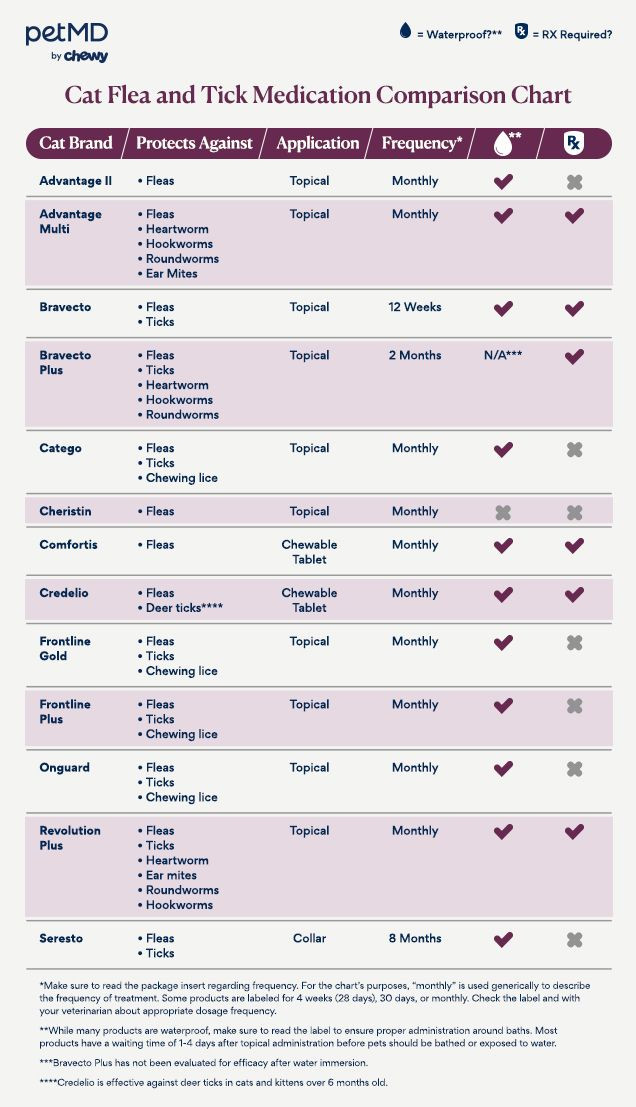Fleas are a common nuisance for cats and their owners. These tiny parasites can cause significant discomfort and health issues for your feline friend. Effective flea medication is crucial for maintaining your cat’s health and well-being. This guide will provide you with essential information to choose the best flea medication for your cat, ensuring they stay happy, healthy, and flea-free.
Why Flea and Tick Treatment is Crucial for Cats
Fleas and ticks are ectoparasites, meaning they live on the exterior of a host animal. Both fleas and ticks feed on blood, requiring them to bite their host. While a single bite might seem minor, the consequences of flea and tick infestations can be substantial for cats.
Flea saliva can trigger several problems in cats, including:
- Flea Allergy Dermatitis (FAD): This is a common allergic reaction to flea saliva, causing intense itching, scratching, and skin irritation.
- Anemia: In severe infestations, especially in kittens or weakened cats, blood loss from flea bites can lead to anemia.
- Tapeworms: Cats can ingest tapeworm larvae when grooming and swallowing fleas, leading to intestinal parasites.
Tick bites also pose significant risks to cats:
- Infection: Tick bites can become infected, leading to localized pain and swelling.
- Abscesses: Infections from tick bites can develop into abscesses requiring veterinary attention.
- Paralysis: Certain tick species can cause tick paralysis in cats, a potentially fatal condition.
- Death: In severe cases, particularly if paralysis occurs or secondary infections are left untreated, tick infestations can be fatal.
Furthermore, fleas and ticks can transmit various diseases to cats. While cats are less prone to tick-borne diseases compared to dogs, the risk is still present. Ticks can also transmit zoonotic diseases, which can spread from animals to humans.
Prevention is always better than cure. The most effective way to protect your cat from flea and tick-related issues is through proactive prevention using appropriate flea and tick medication.
Selecting the Right Flea and Tick Medication for Your Cat
With numerous flea and tick preventatives available for cats, choosing the most suitable option can be overwhelming. Consulting with your veterinarian is always the best first step. They can assess your cat’s specific needs and recommend the most effective and safe flea medication. When discussing options with your vet, consider these key factors:
Species-Specific Medication
Crucially, never use dog flea and tick products on cats. Many dog products contain permethrins, insecticides that are highly toxic to cats. Permethrin poisoning in cats can lead to severe neurological issues like tremors and seizures, and can be fatal. Always double-check the label and confirm with your veterinarian before applying any flea and tick treatment to your cat to ensure it is specifically formulated for feline use.
Application Method: Topical vs. Oral Flea Medication for Cats
Flea and tick medications for cats are primarily administered in two ways: topically or orally.
Topical Flea Medication for Cats
Topical treatments are liquids applied directly to the cat’s skin, usually between the shoulder blades or along the back where the cat cannot easily reach to groom it off.
Pros of Topical Flea Medications:
- Easy to apply at home.
- Many offer protection against both fleas and ticks.
- Some topical medications also provide protection against other parasites like ear mites or heartworms.
Cons of Topical Flea Medications:
- May leave a temporary medicinal odor.
- Can cause transient skin irritation, itching, or hair loss at the application site in some cats.
- May not be ideal for households with young children or other pets who might touch the application site before it dries completely.
- Effectiveness can be reduced by frequent bathing or if the cat has skin or coat issues.
Oral Flea Medication for Cats
Oral flea medications are administered as chewable tablets or pills that cats ingest.
Pros of Oral Flea Medications:
- No risk of residue on the cat’s coat that could be transferred to children or other pets.
- Generally not affected by bathing or swimming.
- Can be easier to administer to some cats, especially those who dislike topical applications.
Cons of Oral Flea Medications:
- Requires ensuring the cat consumes the entire dose, which can be challenging if the cat is a picky eater.
- Some cats may vomit after taking oral medication. If this occurs, contact your veterinarian for advice on re-dosing.
- May cause stomach upset in some cats, although giving the medication with food can help minimize this.
Geography and Local Parasite Risks
The prevalence of different parasites, including fleas and ticks, varies geographically. The Companion Animal Parasite Council (CAPC) is an excellent resource to identify the specific parasite risks in your region. Knowing the local parasite landscape helps you and your veterinarian choose a flea medication that is most effective against the parasites common in your area.
Outdoor Access and Lifestyle
Cats that spend time outdoors are at a significantly higher risk of encountering fleas and ticks, especially in environments like wooded areas, tall grass, or untreated yards. Flea and tick prevention is particularly vital for outdoor cats.
However, even indoor cats are not completely safe from fleas. Fleas can enter homes through various means:
- On shoes and clothing of humans.
- On other pets that go outdoors.
- Through screens and cracks in windows and doors.
- In multi-unit dwellings like apartments, fleas can spread between units.
Therefore, year-round flea and tick prevention is generally recommended for all cats, regardless of their indoor or outdoor lifestyle.
Individual Cat Characteristics
Certain individual cat characteristics can influence the choice of flea medication:
- Genetic Predisposition: A small percentage of cats have a genetic mutation (MDR-1) that makes them sensitive to certain drugs. While not directly related to flea susceptibility, it’s important to discuss this with your vet as some flea medications might be contraindicated. Genetic testing is available to identify cats with this mutation.
- Breed and Personality: While no breeds are specifically more prone to flea infestations, a cat’s personality and typical behavior can affect their risk. Intact cats, and some adventurous breeds like Bengals or Manx, who roam and hunt outdoors may benefit from more robust parasite protection.
- Spayed/Neutered Status: Intact cats may roam more extensively outdoors compared to spayed or neutered cats, potentially increasing their exposure to fleas and ticks.
For high-risk cats, your veterinarian might recommend combining different preventative products for comprehensive parasite coverage.
Life Stage Considerations
When choosing flea medication for kittens or smaller cats, it is crucial to consult your veterinarian. Not all flea and tick preventatives are safe for all life stages and weight ranges. Most medications have minimum age and weight requirements for safe use, typically around 6-8 weeks of age and a minimum weight. Always carefully read the product label and follow your vet’s guidance.
Pre-existing Medical Conditions
While most flea and tick preventatives are safe for cats, some exceptions exist. Isoxazoline class preventatives should be used cautiously in cats with a history of seizures or neurological disorders, as these medications may lower the seizure threshold.
Avoid using any flea medication without consulting your veterinarian if your cat:
- Has a history of allergic reactions to flea medications.
- Is currently sick or underweight.
- Is pregnant, nursing, or intended for breeding.
 list of flea and tick medications for cats
list of flea and tick medications for cats
Over-The-Counter vs. Prescription Flea Medication for Cats
Flea and tick treatments are available both over-the-counter (OTC) and by prescription from a veterinarian. OTC medications can be purchased without a prescription from pet stores or online retailers. Prescription medications require a veterinarian’s authorization.
While OTC options might seem convenient and sometimes less expensive, veterinarians generally recommend prescription flea and tick preventatives.
Advantages of Prescription Flea Medication:
- Often more effective: Prescription medications typically contain newer and more potent active ingredients.
- Safer for cats: Veterinarians can recommend the safest and most appropriate prescription medication based on your cat’s individual health and risk factors.
- Veterinary guidance: Prescription medications come with the benefit of veterinary consultation and ongoing support.
Even if you choose an OTC product, consulting your veterinarian is still advisable to ensure it is a safe and effective choice for your cat.
Comparing Common Flea and Tick Medications for Cats
The following chart provides a comparison of common flea and tick treatments for cats, helping you understand the available options. Discuss these options with your veterinarian to determine the best choice for your feline companion.
When Should You Use Flea and Tick Prevention for Cats?
Year-round flea and tick prevention is recommended for all cats, regardless of season, weather, or geographic location. Fleas and ticks can be active throughout the year, even indoors, making continuous prevention essential.
Flea and Tick Prevention and Treatment FAQs
What is the most effective flea treatment for cats?
Oral flea treatments are generally considered more effective at killing fleas compared to topical treatments. Oral medications are absorbed into the bloodstream faster, leading to quicker action against fleas.
How do vets get rid of fleas on cats?
Veterinarians typically address flea infestations in cats similarly to how pet owners can at home. This often involves:
- Bathing: A bath, often with mild dish soap like Dawn, can help remove fleas and flea dirt from the cat’s coat.
- Oral Flea Medication: Veterinarians commonly administer an oral flea treatment or preventative like Comfortis for rapid flea elimination.
- Capstar: In situations where bathing is not feasible, Capstar, an oral medication, can be used to kill adult fleas within 24 hours. Capstar can be safely used in conjunction with other flea preventatives.
How often do indoor cats need flea treatment?
Even indoor cats require year-round flea treatment. Fleas can easily be brought into the home by humans, other pets, or through cracks and openings. Consistent, year-round prevention is the best way to protect all cats from flea infestations.
References
- Companion Animal Parasite Council
- Washington State University, Veterinary Clinical Pharmacology Laboratory
WRITTEN BY
Lauren Jones, VMD
Veterinarian
Dr. Lauren Jones graduated from the University of Pennsylvania School of Veterinary Medicine in 2010, after receiving her bachelor’s degree…


